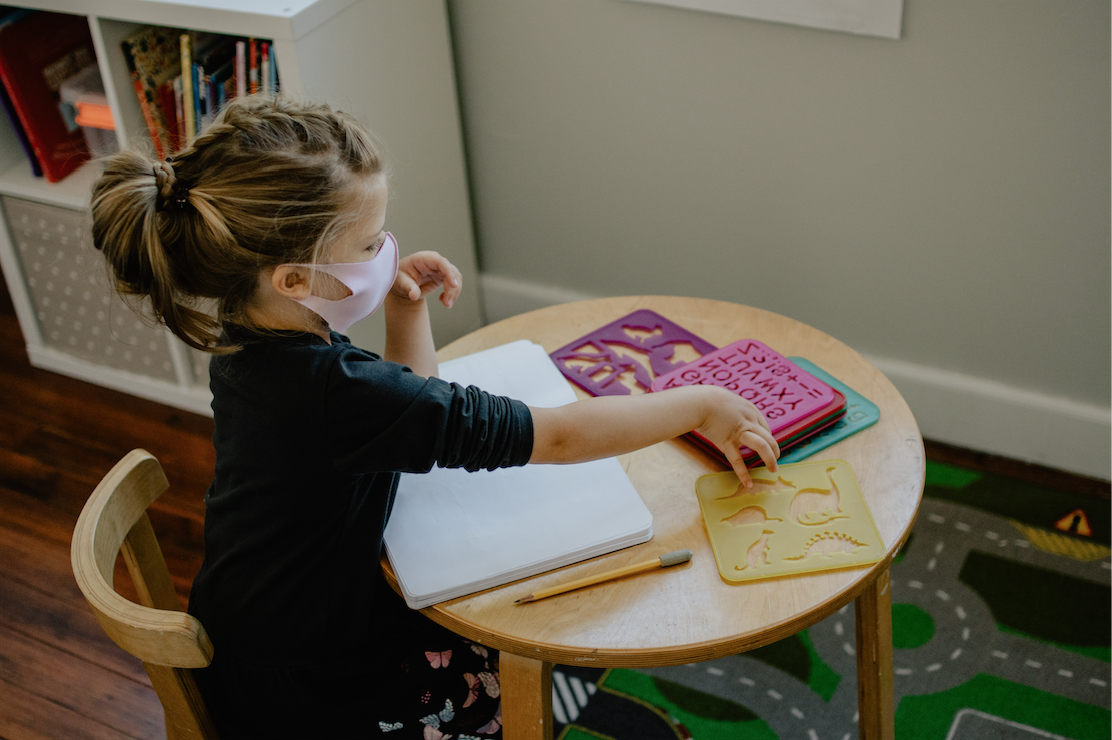![]()
COVID-19 has affected the education world drastically during the last year—online classes, social distancing, a decrease in the length of the school year and cancelation of most of the activities that go hand-in-hand with educational programs. With some of these more obvious consequences, it has been easy to forget a group of students that, on top of already having to deal with all of the new regulations, also had their future career and their study plans altered.
The COVID-19 pandemic has caused “the largest disrupt of education systems in history,” according to the United Nations in its Policy Brief on Education. All around the globe, education systems have been shaken up unprecedently and have had to take several steps back to survive. Most governments had to closed educational institutions temporarily to contain the spread of the virus at the beginning of the pandemic and a lot of them have not opened back up yet. This situation, UNESCO said, currently affects 12.8% of the world’s student population.
Teachers were also greatly affected by the pandemic.The United Nations reports that “The COVID-19 crisis has highlighted that both initial and in-service teacher education are in need of reform to better train teachers in new methods of education delivery.” Teachers had to unlearn years—and for some, even decades —of teaching techniques and adapt to new ones in just a few weeks.
These reports sound even more intimidating to senior education majors that are now left wondering if what they have learned will be enough for the new wave of education systems, or if they will be able to find good jobs. The latter is, unfortunately, a reality that they could face. “In the public sector, teachers on temporary contracts were especially affected, as contracts were not renewed and those paid by the hour were out of work,” the United Nations explained.
But despite all the new hardships, educators worldwide have shown resilience. They have adapted as fast as they can to start providing their service, and day after day they keep learning and applying new methods to ensure the best education for their students. These reports are evident in educators here at John Brown University. More importantly, it is also present in the education department’s curriculum. “In our program, we are addressing what remote learning might look like in Elementary school,” said Curtis Cunningham, chair of the Department of Teacher Education and Graduate Education.
“We have a great partnership with schools in the area, and so we talk to those teachers and administrators about what’s really important right now and that keeps up connected to what’s happening locally in the schools so that then we can share that with our students,” Cunningham said.
These changes to the program help a lot of students feel more engaged in their classes because they felt they were receiving relevant information. Valerie Harder, a junior majoring in English education, shared that “professors modeled how to use technology and teach effectively during a pandemic. “[In class], we talked about a lot of strategies and ways to keep students engaged online. They worked so hard and did a great job making our classes very high quality.”
But for seniors, classes weren’t as pertinent. Most of them stayed the semester away from campus completing their teaching internships. They didn’t take any theoretical classes on how to handle teaching during a pandemic but were actually handling teaching during a pandemic every day. For Ashley Nelson, this was a difficult experience. “We were required to keep all the children separated from each other as much as possible to avoid the spread of COVID-19. Thus, managing the classroom behavior was very challenging because it was not as easy to walk around and monitor everyone’s behavior. Classroom management is already the most difficult part for any teacher, so COVID-19 just made it 10 times harder,” Nelson explained.
As for new information she had to learn, Nelson said that, although teachers were fully willing to help her in any way, she learned new methods from the meetings at the schools. “A lot of the classroom management strategies that we learned previously I did not use because of having to stay apart from each other,” she added.
Other seniors found the experience not as challenging and not nearly as different as they thought it would be. “I spent this entire semester doing an internship at Darr Elementary (Kindergarten) in Rogers and Allen Elementary (2nd grade) in Siloam,” Jessica Lilze commented. “Even though we were all fearful of COVID-19, I loved being in the schools full-time. There were new protocols to help keep students safe (like clear dividers on desks, masks worn at all times, lunchrooms socially distanced, playgrounds were marked off in zones, etc.), but it did not feel that different. At each placement, we had to teach a minimum of two full weeks, everything on our own, and it was really beneficial. Sometimes, it became overwhelming, but my teachers and other JBU interns were a great support system,” Lilze added.
Lilze graduated in Dec. 2020, and she is not fearful of her future in education. “I do not have negative feelings about starting a teaching job during this pandemic. Internships prepared me for what to expect and how to properly clean, social distance the kids and teach remotely.” And more importantly, she is sure education is her path in life. “I believe that I am called to this profession. God and I walked through this one day and one step at a time.”
Photo courtesy of Kelly Sikkema





